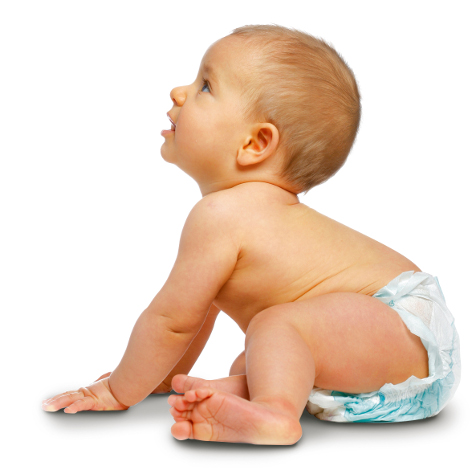Could my baby have nipple confusion?
What is nipple confusion and could my baby have it?

In line with the theory of nipple confusion which suggests that a baby may get confused between a nipple and a teat, healthcare professionals say that it’s best not to use teats or a dummy in the very early weeks of breastfeeding. This is because your baby will use a different sucking action and if they get confused, they may find breastfeeding more difficult. It’s also important not to give extra feeds of formula milk or water, which can interfere with breastfeeding.
Breastmilk is made on a demand and supply basis. The more your baby feeds, the more milk you’ll make.
If you miss a breastfeed, and either give a bottle or top your baby up with formula instead, it may cause your breasts to become engorged, which is painful and can interfere with your milk supply.
The Department of Health recommends you exclusively breastfeed for 6 months, to give your baby the most benefit from your nutrient and antibody-rich breastmilk.
Help is at hand
If you have any questions ask:
• Your midwife, GP or health visitor
• Your local Health Centre.
• Breastfeeding support groups (see below)
• The postnatal ward where your baby was born.
Breastfeeding support
National Breastfeeding Helpline
0300 100 0212
NCT - National Childbirth Trust
0300 330 0700 option 1
nct.org.uk
La Leche League
0845 120 2918
laleche.org.uk
Association of Breastfeeding Mothers
0300 330 5453
abm.me.uk
Here are out top 10 breastfeeding tips
1. Early feed
Breastfeeding as soon after delivery as you can, making the most of skin-to-skin contact, in an undisturbed and unhurried environment. Getting off to a good start helps make breastfeeding more successful.
2. Good Attachment
To prevent feeding problems, make sure your baby is attached to the breast properly.
3. Responsive feeding
Let your baby feed whenever they’re hungry to ensure you make plenty of milk.
4. Room-in
Keep your baby with you all the time and near you through the night.
5. Avoid teats
Delay giving expressed milk from a bottle until breastfeeding is well established. Breastfeeding involves a different sucking action to bottle-feeding and introducing teats too early can confuse your baby.
6. Nothing else needed
Giving only breastmilk provides the greatest health benefits for your baby.
7. Ask for help
Talk to your midwife or health visitor if you need any advice, or contact the support groups (As listed above).
8. Drink normally
Drinking extra doesn’t increase your milk supply, as once thought, but you might find you get thirsty whenever your baby is attached to your breast.
9. Breastfeed anywhere
It’s easy to do it discreetly, so you’re free to go wherever you like without worrying about taking feeds with you.
10. Free and easy
Make the most of this free food, and the fact that there are no bottles to clean and sterilise!